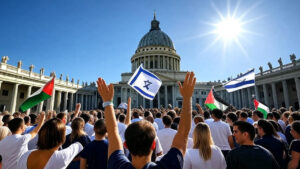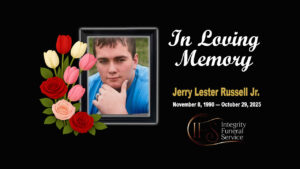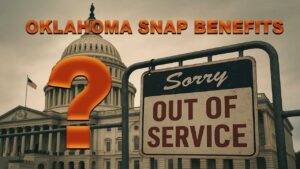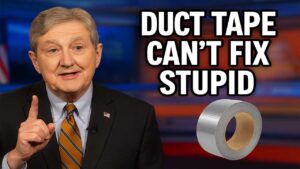Charlie Kirk Revealed: Who Was He – Reflections on His Life and Impact
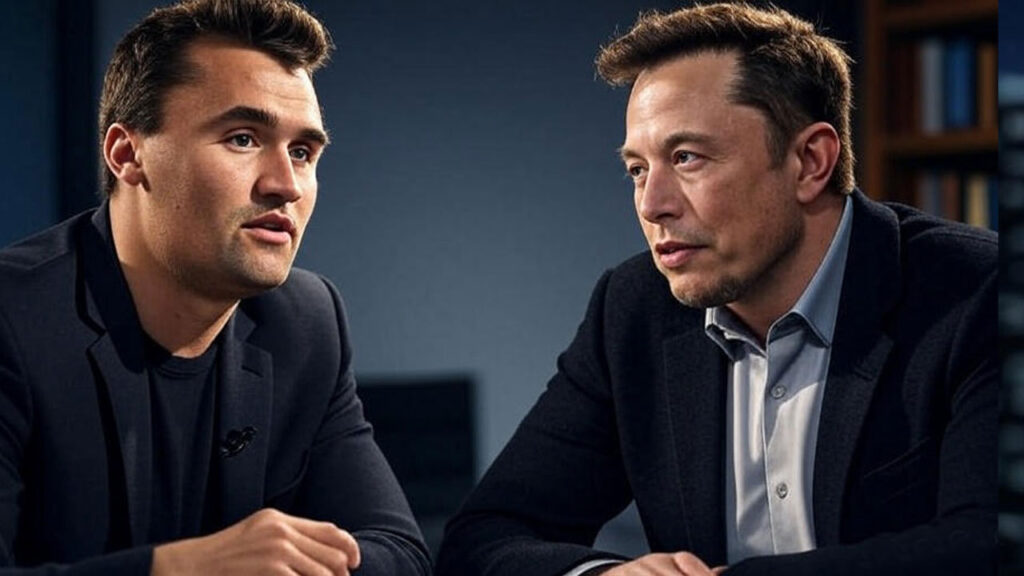
Introduction: Charlie Kirk Revealed: Who Was He – A Tragic Loss and a Call for Unity
In a moment that bridged divides and illuminated the fragility of public discourse, the memorial service for Charlie Kirk on September 22, 2025, became more than a farewell—it was a rallying cry for civility, faith, and unyielding optimism. Kirk, the founder of Turning Point USA and a fervent advocate for conservative values, was assassinated in a shocking act of violence just weeks prior, sending ripples through the political landscape. The service, held in Glendale, Arizona, drew tens of thousands, including high-profile figures like President Donald Trump, Vice President J.D. Vance, and Elon Musk. Amid the grief, Musk’s eulogy stood out as a poetic testament to Kirk’s character, describing him as a “man of peace” slain by “the dark” for daring to show “the light.” This article delves into the profound tributes, the stark political contrasts highlighted during the event, and the enduring impact of Kirk’s life, drawing from the raw emotion of the conversation that unfolded on air following the service.
Elon Musk’s Heartfelt Tribute: A Bridge Between Titans
Elon Musk, the visionary CEO of Tesla and SpaceX, delivered words that resonated like a thunderclap around the world. In a rare display of vulnerability, “Charlie was someone who believed in dialogue and in open debate,” Musk reflected. “He was a man of ideas. He spoke eloquently. He basically never even raised his voice. He was a man of peace. And now he’s been murdered in cold blood.”
Musk’s personal connection added depth to his remarks. When asked if he knew Kirk personally, he affirmed, “Yes, of course. We met many times.” He recalled supporting Kirk’s causes from afar, even alluding to long-standing alliances: “I supported his opposition… I supported Tony Black from, yeah, quite a long time.” The crux of Musk’s message, however, pierced the heart of the tragedy: “He was killed because his words made a difference. Because he was showing people the light. And he was killed by the dark. Charlie was murdered by the dark for showing people the light.” These lines, described by commentators as “profound and beautiful,” encapsulated Kirk’s essence—a beacon in an era of shadows, whose commitment to ideas over ideology ultimately cost him his life. Musk’s tribute not only honored Kirk but also underscored the high stakes of intellectual courage in polarized times.
The Memorial Service: Emotion, Forgiveness, and Unbreakable Spirit
The atmosphere at the Glendale memorial was electric with sorrow and solidarity, as documented filmmaker and commentator Ami Horowitz described it: “The emotion in the room was palpable. It was quite powerful. It was incredible.” Attendees, many who had queued overnight since 4 a.m., filled the stadium in a sea of red, white, and blue, a visual rebuke to narratives that paint conservatives as fringe extremists. Horowitz highlighted a transcendent moment when Erica Kirk, Charlie’s widow, publicly forgave the assassin—a gesture of grace that left the crowd in awe. “The moment where Erica Kirk forgave him was something beyond anything I could possibly muster up,” Horowitz said, contrasting it sharply with the “vitriol and hate and a call for violence” he had witnessed at left-leaning rallies.
Security was fortress-like, with hours-long lines evoking Oval Office protocols rather than a funeral. “You had the president there, the vice president, just about every senior member of the administration,” noted the host, emphasizing the crisis of political safety. Yet, no one complained; the focus remained on unity. Vice President J.D. Vance’s speech wove in a poignant thread: “It is better to die a young man in this world than to sell your soul for an easy life with no purpose, no risk, no love and no truth.” Vance’s words echoed Kirk’s own ethos, framing his death not as defeat but as a noble stand.
Contrasts in Political Violence: Exposing the Divides
A recurring theme in the post-service discussion was the chasm between right-wing resilience and left-wing aggression. Horowitz, drawing from personal scars, recounted being assaulted at a protest simply for holding an American flag—”I didn’t fly a MAGA sign… or some pro-Israel sign. It was an American flag in America.” This anecdote fueled a broader indictment: “It’s so fascinating how the left has devolved into violence.” Citing recent polling, Horowitz revealed a “linear” trend: “The more left you are, the more prone to violence… The more right you are, the less you are calling for violence. And people in the center actually call for more violence… than people in the center right does.”
This data upended media tropes of “right-wing extremism” as the primary threat. “They love running that line that the biggest threat is right-wing extremism, when that’s just not the case,” Horowitz asserted. The conversation dissected how “large lies” amplify kernels of truth—yes, far-right violence exists, but it pales in scale compared to left-leaning incidents. Kirk’s assassin, a figure from the left’s orbit, embodied this inversion, yet some Democrats echoed the killer’s rhetoric, refusing to temper their attacks.
The Joyful Warrior: Charlie Kirk’s Final Moments and Lasting Smile
Perhaps the most gut-wrenching segment aired footage from Kirk’s final day at Utah Valley University—a sun-drenched campus teeming with enthusiastic students. “All right, three, two, one, smile. Awesome, guys. Thank you,” Kirk beamed, his trademark grin lighting up the screen. “He was always smiling. He was the joyful warrior,” the host lamented. “They killed a joyful warrior.”
This clip, expanded from earlier leaks, humanized Kirk beyond the headlines. Horowitz confessed the horror of waking to graphic murder images “seared into my memory,” vowing to rewire his brain to remember the “happy warrior” instead. Kirk’s debates, replayed in hours of archival audio, revealed no trace of the “hate” his detractors alleged. “It’s openness. It’s wanting to convince somebody else of his position. That’s not hateful. It’s the opposite of hateful,” Horowitz insisted. The left’s “words are violence” mantra, he argued, justified their own brutality: “If words are violence, then you can use violence to combat words.”
Media Hypocrisy and the Left’s Echo Chamber
The service exposed media blind spots, as the New York Post’s editorial queried: “Was Jimmy Kimmel watching Sunday? Was ABC? Do they understand the bubble they’ve created?” Tens of thousands traveled nationwide, yet outlets seemed “blindsided” by the grief’s scale. Horowitz marveled at the disparity: More outrage erupted over Jimmy Kimmel’s firing than Kirk’s assassination—a “significant turning point in our culture.”
Ilhan Omar’s post-service tweet, likening Kirk to a “Frankenstein who created a monster who killed him,” drew fire for its deceit—the killer was no Turning Point devotee but a left-leaning assailant. Omar doubled down on CNN, prompting questions about host Kaitlan Collins’s complicity: “Do you think Caitlyn Collins is ignorant? … Or she chose not to make that correction because… she doesn’t want to be sticking up for a Charlie Kirk?” Horowitz lambasted the absence of remorse: “Shame and remorse are not words or actions in the vocabulary of the left.”
Hollywood’s silence was deafening—no Emmy mentions, no tributes—while even mild empathy, like Kristen Chenoweth’s, invited backlash. “That’s a sick, sick place,” Horowitz concluded.
Faith as the Anchor: Humanity in the Face of Horror
Faith permeated the memorial, with nearly every speaker invoking Kirk’s devout Christianity. “His Christian faith was the most important thing to him,” Horowitz observed. “Faith is an important part of what makes us more human.” This spiritual core fueled Kirk’s “happy warrior” persona, contrasting with faithless left-wing rallies that “devolve into violence.” The service’s “loving, warm embrace of life” stemmed from this foundation, a bulwark against demonization.
Yet, the heavy security underscored peril: “Those days of being able to walk on a college campus, give a speech in an open area are over.” Horowitz echoed Douglas Murray and Ayaan Hirsi Ali: “When something like this happens, you spread the risk.” Kirk himself feared DOJ persecution under Biden, confiding terrors of federal prison. In death, his warnings rang prophetic.
Free Speech Under Siege: Lessons from Kirk’s Legacy
Kirk’s murder crystallized free speech’s fragility. The left’s sudden defense of it—rallying for Kimmel amid his show’s cancellation—reeked of hypocrisy. “They’re trying to make Jimmy Kimmel the victim of this entire catastrophe, Kimmel’s lies and doubling down. ABC, reeling from lawsuits, axed the low-rated program, but government whispers raised alarms: “I promise you, it will boomerang when there’s a Democratic president.”
Horowitz advocated consistency: “I don’t like it from either side… Maybe they’ll back away from this sort of cancel culture.” Yet, Democrats’ history of silencing foes—via investigations, campus shutdowns—undermined their pleas. Kirk’s life warned that ideas, once weaponized as “violence,” invite literal reprisals. As the host quipped, echoing childhood lessons: “Use your words… Because they use their violence.”
The Jimmy Kimmel Firing: A Sideshow in the Shadow of Assassination
Tangentially, Kimmel’s ouster dominated left-wing discourse, eclipsing Kirk’s death. “There’s more outrage about a hack comedian who had no audience… than truly a significant turning point,” Horowitz decried. Kimmel’s salary dwarfed his viewership—”How can he earn that salary with that pitiful audience?”—prompting ABC to seize the excuse. Late-night TV’s woes, from ballooning costs to irrelevance, mirrored broader media malaise. “The maths ain’t math-sing,” the host joked, highlighting shareholder scrutiny.
Conclusion: Charlie Kirk’s Enduring Light
Charlie Kirk was no mere activist; he was a catalyst for dialogue in a fractured republic. His assassination, far from dimming his influence, amplified it—reuniting foes, inspiring forgiveness, and exposing hypocrisies. As Musk poignantly put it, Kirk fell to “the dark” for illuminating paths others feared to tread. In reflections from the memorial, one truth endures: In an age of violence, Kirk’s joyful pursuit of truth remains the ultimate rebellion. His impact? A call to wield words as bridges, not bullets, ensuring the light he kindled burns brighter still.



